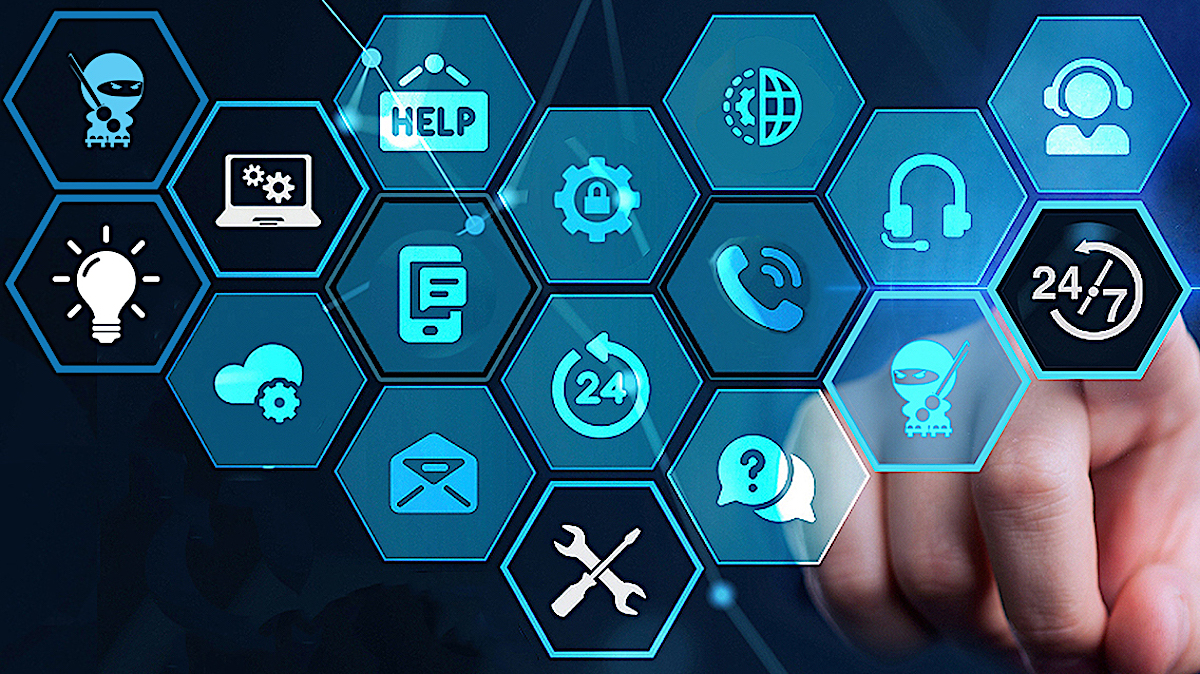What Makes For Quality IT Support For Your Business?
IT support is essentially about offering assistance to company employees and the wider organization regarding technology related issues. The purpose is to provide users with answers to problems they may be experiencing.

Look at it this way, it’s Monday morning, and you’re trying to connect to the office from home. You’ve tried multiple times, but you keep getting the same error. Who do you call for support? The IT department or your co-worker who seems to know a lot about computers?
Your business may have an official or unofficial IT department, but there’s usually a “go-to” person when you need help. That is IT support.In a business environment, IT support can also encompass the setup, installation, and configuration of equipment, plus much more.
In today’s environment, technical support for many businesses may require additional IT resources to support a remote workforce, or assistance with cybersecurity and network performance.
Whatever your business needs, an IT support and service provider, like ourselves here at BVA, can help you ensure your company is covered.
What Does IT Support Do?
Business IT support is more than fixing problems and answering questions. IT support services include optimizing network performance and securing against cyberattacks.
With IT support and services, an organization can realize the full potential of its network and follow best practices for securing its digital assets.
IT service providers can be responsible for the setup, installation, configuration, and maintenance of network equipment, whether that is a computer in the office or at the kitchen table.
They can proactively monitor equipment performance to avoid downtime from equipment failure. They are prepared to help with disaster recovery and backup plans.
Here at BVA, your IT support can be whatever your business needs to ensure continuous operations.
Some of the most common IT support responsibilities can include:
- Troubleshooting and resolving IT issues
- Providing technical assistance to employees
- Updating and maintaining company systems and networks
- Installing and configuring software
- Managing user access permissions and credentials
- Rolling out patches and updates
- Procuring and provisioning devices
- Assisting with data backup and recovery
What Do IT Support Technicians Do?
Supporting company networks requires multiple specialties. For example, our technical support specialists may analyze, evaluate, and troubleshoot network problems. The technicians play a crucial role in maintaining the network and backing up digital assets.
Support personnel are responsible for providing technical help to non-IT computer users, often by responding to phone, email, and chat-based requests for help.
Here at bva, one of our technical ninjas will always be there to answer the call, our 24/7 support allows your business to feel secure in case of an emergency.
You may also require dedicated cybersecurity support specialists, who use their expertise to ensure your network, applications, and data are secure, and can even help with meeting compliance security standards.
Here are a few of the tasks an IT support technician may do:
- Ask questions to diagnose a problem
- Recommend problem-solving steps
- Train users on how new technology works
- Install and configure network components
- Monitor and maintain computer systems and networks
- Troubleshoot system and network problems
- Support applications as required
- Add users to a system and provide credentials
- Mange open customer requests
- Establish working relationships with end-users
The types of technical support depend on the organizations specific needs, budget, and goals. Some companies may want involvement in round-the-clock operations.
Others may be looking for help-desk support during business hours. No matter the need, bva IT support personnel can adapt to serve your business requirements.
Technical support follows a tiered system, where the levels of support are tied to the expertise required to address the problem. The higher the level, the more expertise is needed.
What is Level 1 Technical Support?
Level or tier 1 support is the person on the other end of a phone call, online chat, or an email string.
They are tasked with identifying the problem and providing the most common resolution methods. Tier 1 staff play an essential role in problem resolution.
They are the people who define the problem and acquire as much information as possible to resolve it. If they are unable to resolve the issue, it is transferred to a Level 2 support specialist.
What is Level 2 Technical Support?
Level or tier 2 support requires someone with more technical knowledge. If a level 1 technician cannot resolve the issue, they transfer the issue to level 2 personnel. They, in turn, work to resolve the issue.
In most cases, end-user problems can be fixed at a level 2. If an issue cannot be resolved at level 2, it is escalated to a higher tier. Rarely does a problem go beyond a level 2.
Issues beyond a level 2 are relegated to the creators of the application or hardware. These are glitches that require software updates or patches to fix. Hardware-level problems may require new components.
Why IT Support Is Essential In 2023
Supporting an in-house IT department is expensive, and there are far fewer qualified applicants than there are open positions.
73% of IT leaders say they struggle to recruit in this space, while turnover remains high. Such volatility in recruitment and retention makes external IT support a more viable option for many organizations.
Cyber security threats also continue to grow:
- 47% of small businesses in the U.S. have fallen victim to a cyber attack.
- 67% of which have experienced more than one breach.
- Phishing, password hacking, and adware are among the most common forms of attack against small businesses.
- Cyber criminals methods employed grow more sophisticated and more difficult to detect by the day.
- Without adequate expertise and support, organizations are left vulnerable and prime attack targets.
Downtime from cyber attacks is costly. According to Gartner:
- The average cost of downtime is $5,600 per minute.
- For some technology-intensive operations, the cost can be much higher.
With properly monitored systems, breaches can be prevented and equipment failures can be identified and fixed before they cause an issue.
BVA IT Support Technicians Values:
The qualities required for excelling as a support tech go way beyond the ability to perform particular technical tasks, being a successful support tech requires the appropriate attitude and aptitude.
- Respect for all users, team members, and superiors.
- Self-disciplined, reliable, dependable, and punctual.
- Effectively and strategically prioritize tasks.
- Dedication and commitment to problem resolution.
- Detail-oriented working style.
- The ability and willingness to communicate.
- Sharing knowledge amongst the technical ninjas, team members, superiors, and users to improve all parties technical awareness.
- Humble attitude about knowledge limitations, and the willingness to learn to adapt with the evolving times.
- The ability to learn from experience and from informal/formal instruction.
- The ability to think logically and creatively.
- The ability to apply knowledge to new situations.
- Staying ahead of the curve, and up-to-date on current technologies.








